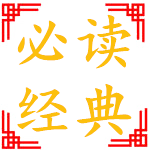Chinese in Turkey warned amid protests
China warned its citizens in Turkey to be cautious about recent anti-China protests that have "disturbed" some tourists.
The notice, released by the Ministry of Foreign Affairs on Sunday, said that several anti-China demonstrations have recently occurred in Turkey and Chinese citizens should enhance their protection and reduce going out alone.
An Istanbul-based restaurant owned by a Chinese businessman from Wenzhou, Zhejiang Province, was broken into on Sunday by Turkish protesters, but no one at the restaurant was injured, according to Cheng Jianbing, vice president of Turkey's Chinese Chamber of Commerce.
Cheng told the Global Times on Sunday that hundreds of Turkish protesters continued to gather outside the Chinese consulate general in Istanbul and some at the Topkapi Palace on the banks of the Bosphorus Strait to demand equality for ethnic groups.
"The protesters were instigated by fake pictures and rumors circulating online, claiming that the Chinese government bans fasting during Ramadan," Cheng said.
A Turkish-owned Chinese restaurant in Istanbul, whose chef was an ethnic Uyghur, was attacked on Wednesday and had its windows smashed, he said, adding that there was no casualty report so far.
The attackers belonged to a notorious far-right group called the Grey Wolves, who are closely affiliated with the Nationalist Movement Party (MHP), said AFP.
The protest came amid the Turkish government's recent concerns over reports about the ban on fasting and observing other religious duties for Uyghurs in the Xinjiang Uyghur Autonomous Region, adding that it has caused "sadness" among the Turkish people.
China on Wednesday denied such accusations at a foreign ministry briefing when ministry spokesperson Hua Chunying pointed out that all people in Xinjiang enjoy the freedom of religious belief accorded to them by the Chinese Constitution, according to Reuters.
"Some Turkish people with Pan-Turkism sentiment shares links with the Uyghurs and they would stir up troubles whenever something happened with the ethnic group. This national emotion will be a long-term and difficult gap for the development of Sino-Turkish relations," Li Weijian, an expert with the Shanghai Institutes for International Studies, told the Global Times.
The Turkish government is facing challenges in its domestic and foreign policy, including its setback at its relations with Syria. This all explained its attempt to utilize issues with Xinjiang to detract public attention, said Li, adding that the government's nonfeasance toward the protest may encourage protesters to be more violent.









 湘公网安备 43102202000103号
湘公网安备 43102202000103号